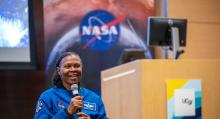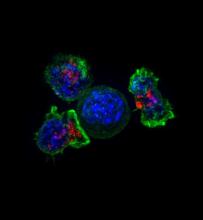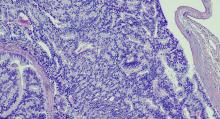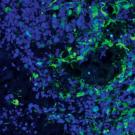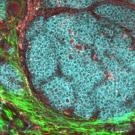News
Brain Organoids Reveal Glioblastoma Origins
Glioblastomas are the most aggressive form of brain cancer — they grow and spread rapidly through the brain and are virtually impossible to eradicate, typically leading to death within one or two years of diagnosis. Scientists are constantly seeking more powerful targeted therapies, but so far
Should You Take a Direct-to-Consumer DNA Test?
Since the human genome was completely sequenced in 2003, genetic testing has exploded into a multibillion-dollar industry. And with the rise of so-called “direct-to-consumer” tests such as those sold by 23andMe, which don’t require a physician’s sign-off, investigating your genes is easier than ever
Year in Review: 2019
The opening of the PCMB led the news at the UCSF Helen Diller Family Comprehensive Cancer Center in 2019. Whether through expediting drug discovery, tailoring genomic sequencing, or expanding palliative care, our UCSF cancer community remained committed to improving outcomes for every cancer patient
In Childhood Cancer, Private Insurance Means Better Survival
Children and young adults with pediatric cancer are less likely to be alive five and 10 years following diagnosis if their health insurance is covered by Medicaid or other government agencies, compared to those with private insurance, according to researchers at UCSF Benioff Children’s Hospitals. In
E-Cigarettes Significantly Raise Risk of Chronic Lung Disease, First Long-Term Study Finds
E-cigarette use significantly increases a person’s risk of developing chronic lung diseases like asthma, bronchitis, emphysema or chronic obstructive pulmonary disease, according to new UC San Francisco research, the first longitudinal study linking e-cigarettes to respiratory illness in a sample
Researchers Halt Spread of Breast Cancer by Blocking Metastasis-Promoting Enzyme
In a breakthrough with important implications for the future of immunotherapy for breast cancer, UC San Francisco scientists have found that blocking the activity of a single enzyme can prevent a common type of breast cancer from spreading to distant organs. While studying a mouse model that
